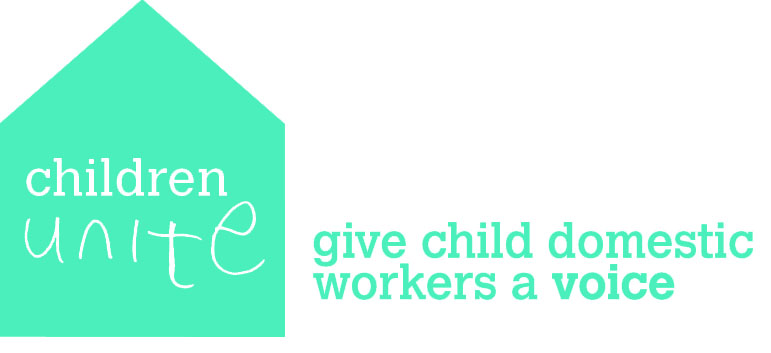Children Unite’s campaign ‘SEND your gLOVE’
was launched in March and is demanding that the UK Government protect child
domestic workers around the world from exploitation and abuse.
On 16 June 2011, after years of discussion,
the International Labour Organization (ILO) took a momentous step forward in
the worldwide protection of adult and child domestic workers from exploitation
and abuse. They adopted a new convention meaning up to 100 million domestic
workers will finally receive the same rights as other workers, with special
attention given to protecting children.
The Philippines on Wednesday became the second country to ratify
the treaty, which was passed in June 2011, after Uruguay ratified it on June 14
this year, according to the ILO, which requires two countries to ratify a
treaty before it can go into effect.
"Today's
ratification by the Philippines sends a powerful signal to the millions of
domestic workers who will be protected when the Convention comes into force," ILO
chief Juan Somavia said in a statement.
"I hope it
will also send a signal to other member states and that we will soon see more
and more countries committing to protect the rights of domestic workers," he
added.
But the British government won’t ratify the
ILO convention, their objections to ratification are weak and do not reflect
the long history Britain has of defending the rights of those most vulnerable
to abuse and condemning slavery in all its forms.
Children
Unite believes the UK government needs to take a stand and give a strong
message to other countries that it will not tolerate the abuse or violation of
children, wherever they may be, in situations of domestic work.
The SEND your gLOVE campaign targets Vince
Cable’s department for Business, Innovation and Skills through postcards, an
e-petition on Children Unite’s website and, innovatively, through messages of
solidarity on rubber gloves.
The rubber glove is a symbol of the
protection the legislation can give to domestic workers – in the same way that
a rubber glove protects our hands when we are doing domestic chores. Hundreds of gloves have already been signed
by the good British public and are being collated by Children Unite. A rally will be organized in July next year
when the gloves will be presented to Vince Cable. Here are some examples:
Children Unite is working with a coalition of NGOs and Trades Unions and have written to the Business, Innovation and Skills Department to demand why the UK Government objects to the ILO Convention.
Action you can take:
- Sign our postcard and send it to Vince Cable
- Write a message of support on rubber gloves and send them to us
- Sign our e-petition on our website
- Follow us on Twitter @ChildrenUnite
- Subscribe to us on Facebook
IN PERU
Children Unite is working in partnership
with La Casa de Panchita to lobby the Peruvian Government to ratify the ILO
Convention and has produced a postcard that we are asking people to send to
Peru.
Between March and July this year, 200
postcards have been sent from people in the UK to La Casa de Panchita to
support the ratification of ILO Convention in Peru.
A big thank you to all the 200 people who
sent postcards to Peru – please keep them coming, it is very exciting for the
children of La Casa de Panchita to receive a message of support all the way
from the UK.
La Casa de Panchita are sending these
postcards to key people that they want to support the campaign. Sixteen postcards
have also been delivered people who have then committed themselves to support
the campaign and had their photograph taken to show their support.
These photographs are being displayed on a
special page of the La Casa de Panchita Facebook Profile….click here to see the Facebook Page!
Additionally La Casa de Panchita is also
part of a working group of advisors that includes Congressman Javier Diez
Canseco and Eduardo Rodriguez of the ILO tasked with discussing the role and
commitment of the Congress in ratifying the ILO Convention.



